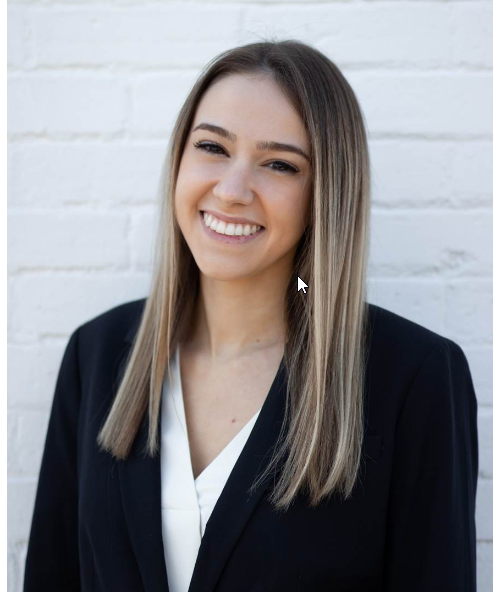
Gone are the days of flipping through a Sears catalog to buy five new outfits for the season. Gone are the days of simply going to a store to buy a new shirt that later five other people you know are also wearing. The rise of thrifting and buying upcycled clothes has created a world where every individual can curate a closet of one-of-a-kind pieces that are a statement and form a personal style.
Lauren Levin ’22, studying Entrepreneurship and Emerging Enterprises and Management in the Martin J. Whitman School of Management is founder of the online thrift store vintage. Levin has always been a thrifter and style enthusiast. She originally started thrifting as a response to concerns over environmental sustainability in clothing manufacturing, but it has not become a joy for her as she discovers items of unique beauty,
The fashion industry produces 10% of the world’s carbon emissions. Not only does clothing production wreak havoc on the environment, but cheap prices promoted by fast fashion companies encourage overbuying and waste, with consumers throwing away literally mountains of waste of unwanted and out-of-style clothing.
The modern lifestyle of endlessly shopping and buying clothes to be worn only once or twice is causing significant environmental damage.
During her senior year of high school Levin realized the serious consequences of fast fashion consumption and decided to switch to more sustainable purchases of secondhand items. She realized though, that thrifting is not a sustainable buying pattern for everyone. While she personally fell in love with the experience of it — the hours spent sorting through racks of clothes to find that perfect item — many people don’t have the time or inclination to find the perfect upcycled clothing.
“Finding clothes is one of the most time-consuming activities,” Levin admitted of thrifting. “There are options for online thrifting, but it can be difficult to narrow down what you’re looking for.”
Inspired to make sustainable choices and individual fashion accessible, Levin decided to start selling self-curated vintage items. She started an Instagram account called Vintage Cuse and began advertising vintage Syracuse wear. Her selection of carefully-curated pieces soon became so popular, Levin decided to expand her business into school clothing for more colleges, and launched a website, vintageU.
The layout of vintageU’s website is simple: minimalist with a small selection of individual vintage items from 27 different schools, from Miami to Michigan. The purpose is also clear, that buying secondhand clothing reduces carbon emissions and landfill waste. vintageU’s products are a double win for their customers- not only do they get stylish, one-of-a-kind clothing to champion their school spirit, but they also get to make choices directly contributing to social change.
With its socially minded mission and carefully selected items, it’s no surprise that vintageU has grown remarkably during Levin’s time at school. Much of their growth is attributed to Levin’s fearless pursuit of business success. Boldness embodies her.
One of the recent ways Levin has been growing her company is through advertising, which she’s done through partnering with social media influencers by cold connecting with them. Through the initiative she’s taken to create media presence and cultivate connections at other universities to expand her business, Levin has created a national network for vintage college clothing.
“The main reasons why I am where I am is that I’m a very impulsive person and take risks,” said Levin about the work she’s done to start and grow vintageU.
In reflecting on her own business, Levin believes what inspires her and the value she finds through entrepreneurship is the ability to make a difference. Through her boldness in creating vintageU, she’s turning one of her favorite hobbies into a business that genuinely impacts the environment and shapes more sustainable buying habits.
Story by Blackstone LaunchPad Global Fellow Claire Howard ’23; photo supplied